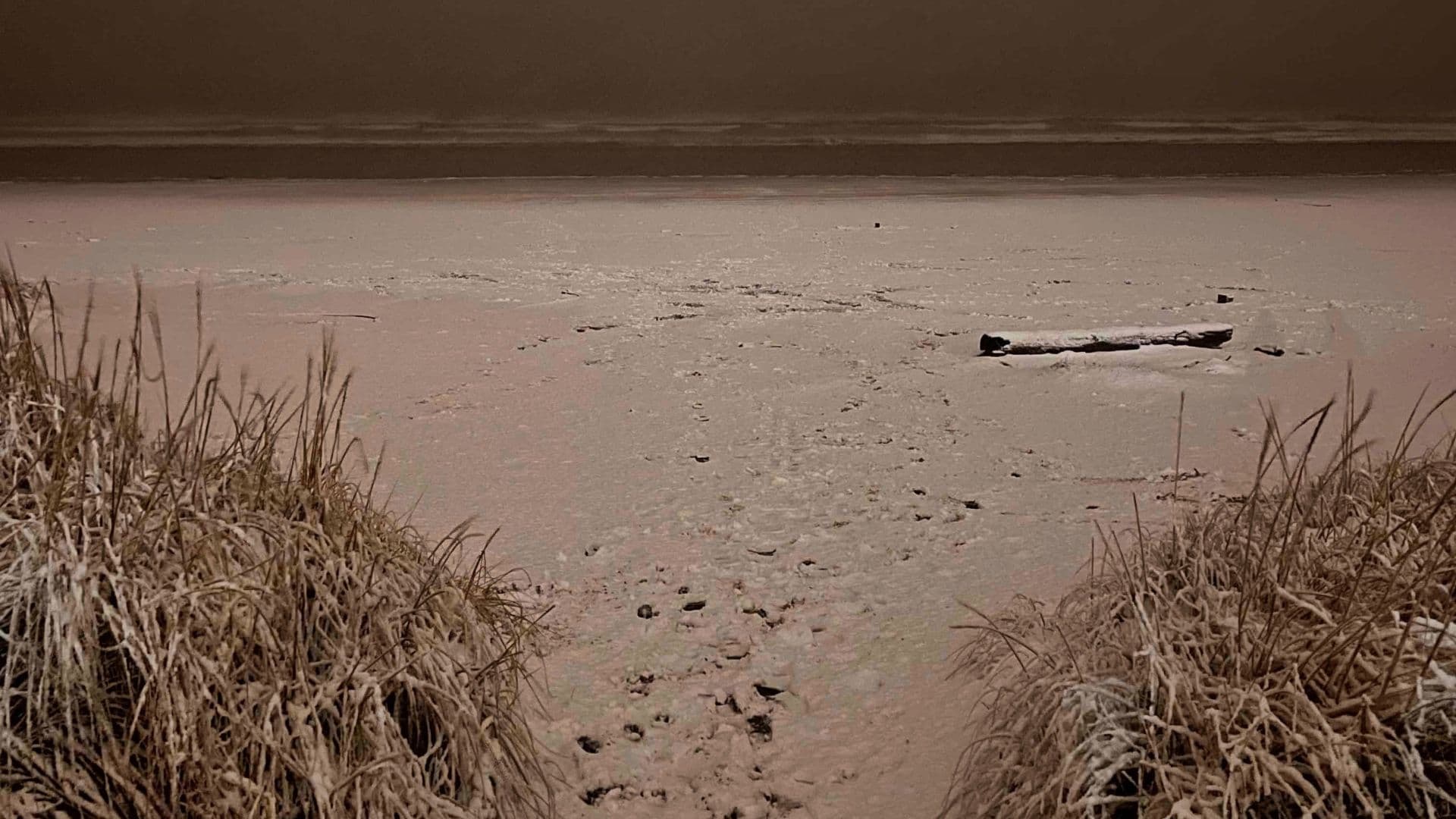
While everyone was riding the waves of different Covid-19 variants over the past few years, I found myself pulled into my own personal swell: A resurgence of my anxiety disorders.
Anxiety, like water, is easy to drown in. I bought my first car and spent months imagining crashes in horrific detail. Then my anxiety surged like a sneaker wave, swelling from one specific fear to every fear, everything. I was starting grad school soon, something I’d wanted for years, and all I felt was dread that I wouldn’t be able to handle it. I’ve been told you should never turn your back on the ocean when it’s at its wildest; life itself became anxiety. I fixated on my health, convinced something was wrong with my stomach, my heart, the way I breathed. I didn’t sleep for nights in a row. Floating through those days, my connection to reality faded in and out. I’ve never felt more like a ghost.
I could write about therapy sessions I attended, journal entries I wrote, medications I took, meditation retreats I went on, all the practical techniques I used to try to help myself feel more like myself. Those have their uses. But this kind of anxiety, the kind you’re swept up in, requires something more. It forced me to shift my perspective.
I started this past new year in Seaside, Oregon. One night, snow drifted down, blanketing the beach, adorning each individual blade of seagrass. I ran outside to witness my first oceanside snowfall, and there it was, shy moonlight making the snow glow and the waves sparkle, the bite in the air clouding my breath. This place of breeze and sea spray and undulation suddenly rendered still.
Standing in front of the dark waves that night, watching soft flakes drift down, I was reminded that nothing lasts as long as we think it will. Snow melts. Storms die. Even in the cold, standing there felt the same as it always does when I stand in front of the sea, placing myself before a force so powerful, everything worrying me seems utterly insignificant.
The power of my anxiety never awes me like the ocean does. The long days and nights working to mend my overreacting nervous system can’t be romanticized. They’re a blur of survival, of doing the bare minimum. They’re an endless string of reminders: This won’t last forever. You always get through this. Life will be better soon.
The snowstorm brought me wholly into that fight. I ended up trapped on the coast a few days longer than anticipated. One day, I was even trapped in my sixth-floor hotel room, the elevators down after a power outage and the only set of stairs, exposed to the elements, coated thickly in ice. I could watch the ocean from the floor-to-ceiling windows in the room, could see what I couldn’t reach. I was anxious, but I never had a panic attack, never even came close. Instead, a dull acceptance tinged with dread settled into my body. If experiencing so much anxiety in the past few years — indeed, feeling possessed by it, feeling like the embodiment of anxiety itself — had taught me anything, it’s that I could live through it. So that’s what I did. I waited, a little uneasy but continuing on, and the storm passed.
I don’t believe that anything happens for a reason. But why suffer without learning from it, allowing it to change you in some way for the better? Not all types of suffering lend themselves to this approach; sometimes pain is just pain. But I do know what I’ve learned from anxiety: How to be kinder to and not judge others, because you never know what someone is fighting internally; how to appreciate feeling deeply, even when it hurts; how to savor the calm moments and experience gratitude so deep it’s in my bones.
Anxiety is a necessary evolution, a way to keep ourselves safe; it has helped keep me alive and, in the next breath, made me feel like I’m dying. It’s ultimately a story my brain tells itself, and while I can’t always control the narrative, I can control the way I tell it. Anxiety can be an ocean if I want it to. Or the ocean can be a place of healing from anxiety.
Or both.
